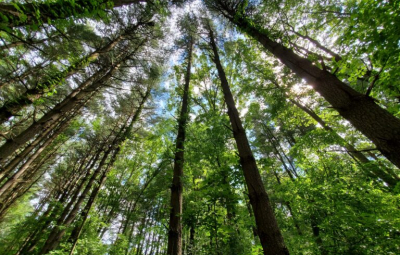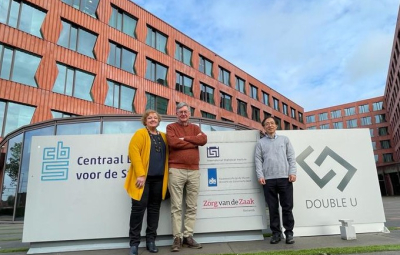It is important for us to appreciate the challenges facing education around the world, particularly in developing countries. Following a recent post by Monday Osagie Adenomon, “Data speak louder than words” (22 June 2021), I decided to add to the conversation, by reflecting on my experiences as an educator in another African country.
Unemployment amongst the youth is widespread in Africa. From education to opportunities for employment and assistance with entrepreneurship plans, governments on the continent face challenges on how to prevent what has been best described as a time bomb. Youth unemployment contributes to lower family income, crime due to joblessness, and a host of other social issues.
It is as if many countries in Africa are on a knife’s edge, at times it is as if there are wonderful opportunities that will catapult the youth into a new reality for the continent, but at other times, social problems causing sporadic events that have long-lasting effects on fragile economies in Africa, and in South Africa in particular.

Working as a faculty member at a university (college) in South Africa for over 30 years has been rewarding, eventful, but at times, also overwhelming and actually, quite sad. It has been a rollercoaster ride, with the highs getting higher, but sadly, the lows also getting lower as the years go by. So… I keep asking myself what I can do to improve the prospects of a good future for my students, so that they can have the future they deserve.
After 41 years of unequal opportunities between races, education and training in South Africa was restructured when Apartheid ended in 1992 – the intent was to reflect the values and principles of a democratic society. A new school curriculum was introduced, the universities and other institutions of higher education were opened to all races, and a national student funding scheme (NSFAS) was defined to open up access to higher education for historically disadvantaged students – the stage was set to overturn the legacy of apartheid and catapult South Africa into the 21st century through the provision of sound education for all.

Sadly, almost thirty years after the end of Apartheid, the reality is that successful completion of a higher education qualification is still far from representative of the population, with higher education still inaccessible for large proportions of youth, due to inferior preparation at school level, lack of funding opportunities, and many other social issues. Even more sadly, a large proportion of students who are recipients of government funding schemes for study at higher education institutions have not been able to comply with progression rules and have consequently been disqualified and excluded from the program.
South Africa has consequently witnessed an unprecedented wave of student protests in the past 10 years, to the point where those affected have had their moral compass shaken; they feel that they have been deliberately ignored, resorting to violence, destruction of property and vandalism on campuses. The reality is that the country simply cannot keep funding students that are not showing adequate progress toward their degrees, but exclusion of masses of students because of progression rules can lead to violence.
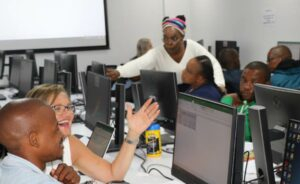
Many programs and interventions have been introduced at institutions of higher education to optimize the chance of successful completion of qualifications for all students, but success rates remain lower than ideal. For the institution where I teach in South Africa, for example, of the 30659 students who registered for a Science-based degree between the years 2005 and 2019, 33% dropped out and 11% were academically excluded (had to leave as they did not maintain minimum progression criteria).
Institutions of higher education around the country continuously work to improve programs, seeking additional funding for students and support for academically vulnerable students in order to improve their chances of success. This typically takes a mammoth amount of effort and time of faculty and staff, but events over the last eighteen months have added a whole new layer of complexity to the higher education arena in the country!
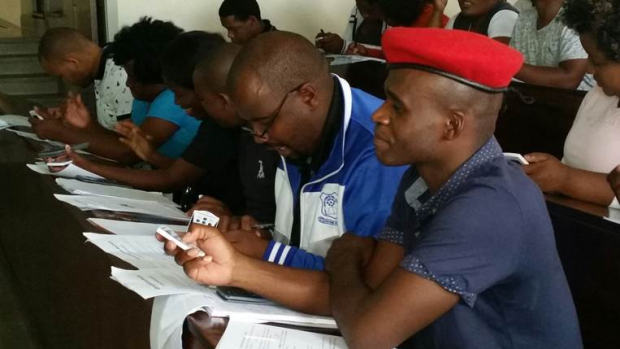
The 2020 year started with student violence on campus, not uncommon as registration is a “high risk” period because large masses of students who have not completed sufficient credits to progress in the system, are excluded at that time. So, 2020 started on a low note, which is sad but not unusual. As the year progressed, things went downhill from there, as COVID-19 struck!
The institution was dealing with a compromised academic calendar following student unrest, and then had to go into “online teaching” mode due to Covid-19. As is common at institutions of learning in a developing country, a large proportion of students did not own laptops, did not have adequate internet bandwidth to download online lectures, did not have funds to find accommodation off campus when the campus closed, and they could not go home as there was no internet connectivity in many rural areas. Added to those serious challenges, academic staff at my institution were not at all experienced in online teaching or assessment. You can well imagine this Covid-induced nightmare!
It took mammoth effort, with loads of planning and crisis management, to keep the academic program afloat in 2020. Faculty and staff were challenged to come up with innovative ways to teach and assess in online mode, given the challenges they were facing, as well as all the challenges that students were facing to learn online, when they had not ever done so before. It was extremely challenging for staff and students alike to be catapulted into an entirely new world, without the tools to be successful. But somehow, with a very steep learning curve and some emergency funding for internet and laptops, the year ended with a reasonable level of academic success, but certainly at a cost of high levels of stress (particularly amongst management). This bodes well for the future though, as both faculty and students were forced to upgrade their online education skills, and in a way, the crisis catapulted the students and staff into more modern ways of teaching and learning – unfortunately, it also placed severe financial strain on the institution, as the costs of internet access, laptops, and training had to be covered without planning.
When the academic year 2021 started in January, we were still in lockdown mode due to the second COVID-19 wave, but we were confident it was going to be a much better year, as there was talk of a vaccine roll-out and staff and students were now well-versed in on-line teaching and learning. Despite starting the year on a high note, the country faced a second COVID-19 wave in late Jan/Feb, and then a third in June/July – these waves were much less disruptive than in 2020, but then, out of the blue, social violence erupted in our province in mid-July, bringing everything to a total standstill for about ten days rocking staff and students to the core!

The unrest and looting in KwaZulu-Natal and Gauteng provinces in July 2021 led to massive destruction of property, with the looting of entire shopping complexes and many businesses being set afire. Sadly, it has been verified that young people aged 18-35 were the main participants. Though almost thirty years have passed since Apartheid ended in the country, South Africa remains one of the most unequal societies in the world, with 80% of total wealth in the country being held by 10% of the adult population and unemployment still being rife amongst the youth (59% of those aged 15-34 years).
So though I have seen violence before on campus, and off campus, it took the recent social unrest for me to see what we have to do as educators – we must, with extreme focus and with all our energy, revisit, revamp and totally revolutionize education.
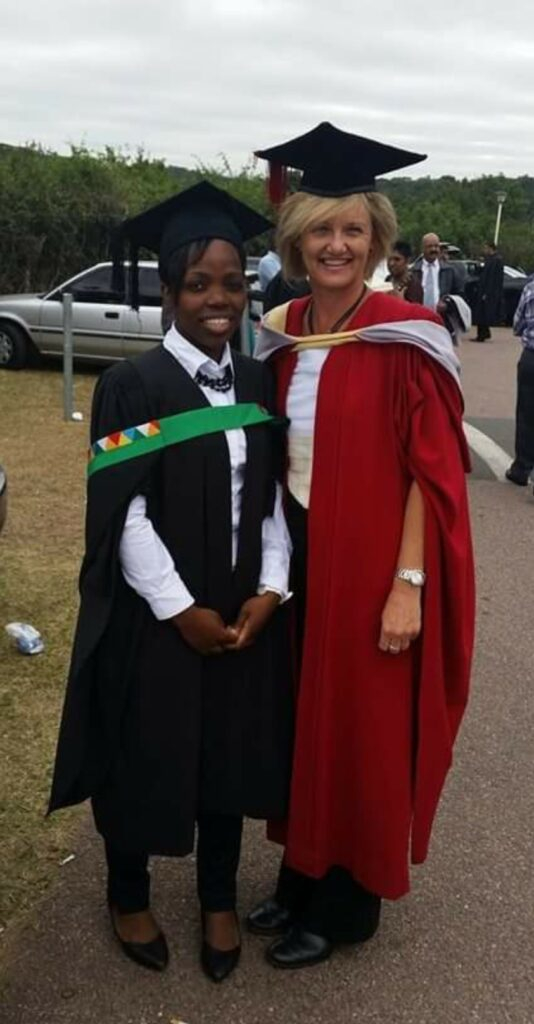
The most shocking statistic of all is the fact that 33,1% of graduates in the country are unemployed! We attempt to align our degrees with the needs of business and industry, but it is unacceptable that only one of every three successful graduates from higher education will successfully enter the work force in the country, and this is in addition to all those young people that
- did not complete schooling,
- did not get funding to attend higher education, or
- attended but did not complete a higher education qualification.
A phrase adapted from the Book of Ecclesiastes reads, “The thing that hath been, it is that which shall be; and that which is done is that which shall be done: and there is no new thing under the sun….”
The pandemonium into which the country was recently plunged has been long coming – the youth are disempowered and angry. If we want to prevent this kind of social unrest, we need all do more, and I aim to do my bit to ensure that our curricula “speak” to the needs of the workplace. Accordingly, I seek partnerships with industry so that our students are ensured of internships in their final year of study to adapt to changing needs in the workplace. And, our students become ambassadors who go to their high schools and inspire the next generation of learners in higher education.
Now is the time for new things under the sun in South Africa education; for new beginnings, for new hope, calling for careful strategy to define joint projects that aim to build capacity at different levels, with rich feedback between levels. If university faculty and students work with schools and their learners, and with industry partners, then magic happens – in the form of educational degrees and employment opportunities for youth.




